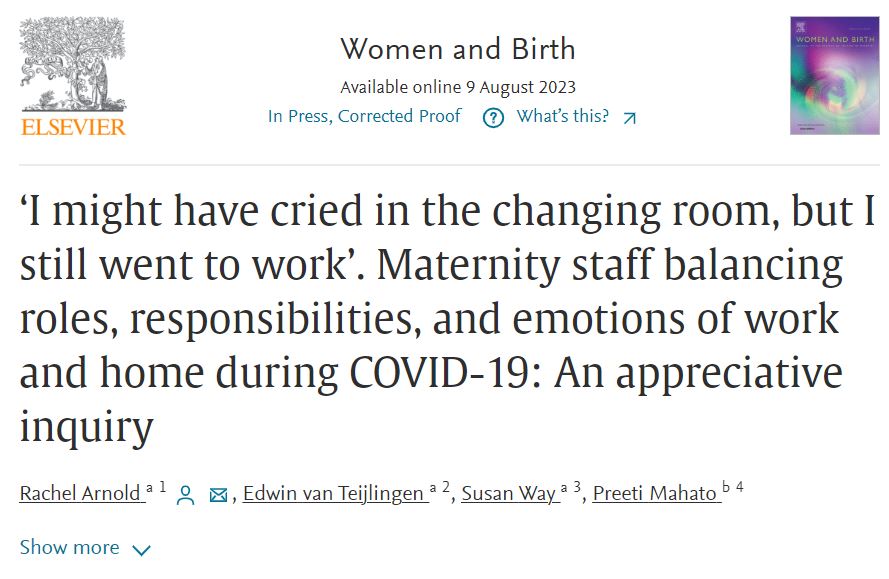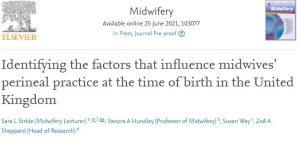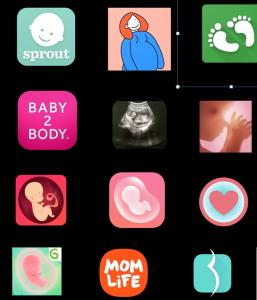
Congratulation to Dr. Rachel Arnold and her Centre for Midwifery & Women’s Health research team on the publication yesterday of their paper ‘I might have cried in the changing room, but I still went to work’. Maternity staff balancing roles, responsibilities, and emotions of work and home during COVID-19: An appreciative inquiry [1]. This paper focuses on how to support staff and enhance their well-being in a small UK maternity service. The underpinning methodological approach is appreciative inquiry using interviews with 39 maternity staff and four group discussions exploring meaningful experiences, values and factors that helped their well-being.
The key findings are that maternity staff members were highly motivated, managing a complex melee of emotions and responsibilities including challenges to professional confidence, mental health, family situation, and conflict between work-life roles. Despite staff shortages, a demanding workload, professional and personal turmoil, and the pandemic participants still found meaning in their work and relationships. The authors go on to argue for a ‘whole person’ approach, since this approach provided insight into the multiple stressors and emotional demands staff faced. It also revealed staff resourcefulness in managing their professional and personal roles. They invested in relationships with women but were also aware of their limits – the need to be self-caring, employ strategies to switch-off, set boundaries or keep a protective distance. Overall, the paper concludes hat staff’s well-being initiatives, and research into well-being, would benefit from adopting a holistic approach that incorporates home and family with work. Research on emotion regulation strategies could provide insights into managing roles, responsibilities, and the emotional demands of working in maternity services. Emotion regulation strategies could be included in midwifery and obstetric training.
 This paper was proceeded by a more methodological paper on the application of Appreciative Inquiry in this study [2].
This paper was proceeded by a more methodological paper on the application of Appreciative Inquiry in this study [2].
References:
- Arnold, R., Way, S., Mahato, P., van Teijlingen, E. (2023) “I might have cried in the changing room, but I still went to work”. Maternity staff managing roles, responsibilities, and emotions of work and home during COVID-19: an Appreciative Inquiry, Women & Birth (online first)
- Arnold, R., Gordon, C., Way, S., Mahato, P., van Teijlingen, E. (2022) Why use Appreciative Inquiry? Lessons learned during COVID-19 in a UK maternity service, European Journal of Midwifery 6 (May): 1-7.



















 Expand Your Impact: Collaboration and Networking Workshops for Researchers
Expand Your Impact: Collaboration and Networking Workshops for Researchers Visiting Prof. Sujan Marahatta presenting at BU
Visiting Prof. Sujan Marahatta presenting at BU 3C Event: Research Culture, Community & Can you Guess Who? Thursday 26 March 1-2pm
3C Event: Research Culture, Community & Can you Guess Who? Thursday 26 March 1-2pm UKCGE Recognised Research Supervision Programme: Deadline Approaching
UKCGE Recognised Research Supervision Programme: Deadline Approaching ECR Funding Open Call: Research Culture & Community Grant – Apply now
ECR Funding Open Call: Research Culture & Community Grant – Apply now ECR Funding Open Call: Research Culture & Community Grant – Application Deadline Friday 12 December
ECR Funding Open Call: Research Culture & Community Grant – Application Deadline Friday 12 December MSCA Postdoctoral Fellowships 2025 Call
MSCA Postdoctoral Fellowships 2025 Call ERC Advanced Grant 2025 Webinar
ERC Advanced Grant 2025 Webinar Update on UKRO services
Update on UKRO services European research project exploring use of ‘virtual twins’ to better manage metabolic associated fatty liver disease
European research project exploring use of ‘virtual twins’ to better manage metabolic associated fatty liver disease